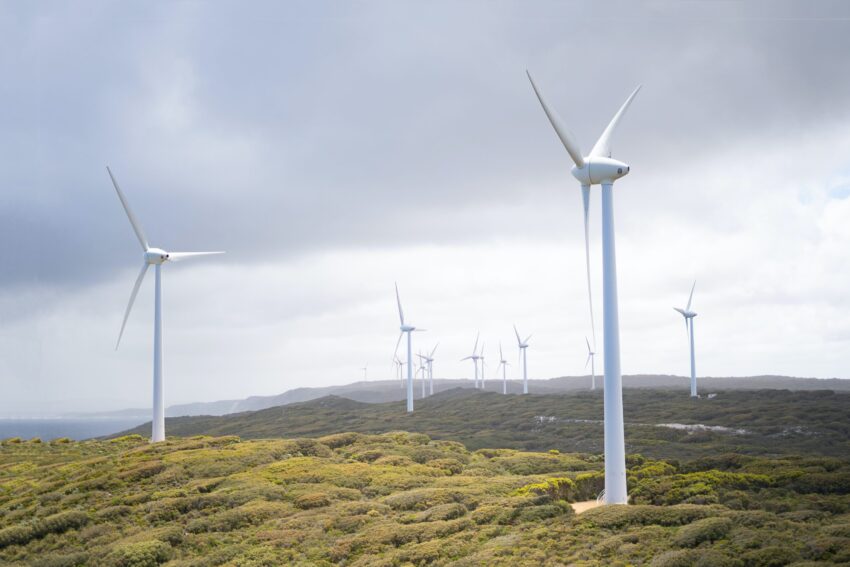PRESS RELEASES | 30/03/2023
Aldersgate Group reacts to “Green Day” announcements

Reacting to today’s overall announcements, Nick Molho, Executive Director of the Aldersgate Group, said: “Delivering net zero will require simultaneous and carefully co-ordinated action across multiple parts of the economy. It is therefore encouraging to see policy and funding interventions being announced today in a wide range of sectors from energy efficiency and grid infrastructure to carbon capture and hydrogen. The investments targeted at growing the share of UK manufacturing on heat pumps, floating offshore wind and other technologies also introduce an important industrial strategy perspective to the Green Day announcements. It is positive to see the Prime Minister and Chancellor of the Exchequer rightly recognising that the net zero transition is a key part of achieving the UK’s energy security and economic policy goals.
While many announcements move in the right direction, there is still much work to do to meet the scale of the economic and environmental ambition called for in the recent Skidmore review and the latest IPCC report. In particular, further policy detail in areas like home energy efficiency and heating, heavy industry and surface transport is urgently required to meet the challenge presented by increased global competition from the US and the EU, and attract the scale of private investment needed in the UK’s low carbon infrastructure. Plugging these outstanding policy gaps must be accompanied by the creation of a Net Zero Delivery Body as recommended by the Skidmore review. This body has a vital role to play in ensuring the necessary levels of co-ordination across Whitehall to hit the UK’s net zero target.”
Reflecting on some of the key announcements made on Green Day, Nick Molho added: “The Government has rightly recognised the urgency of removing barriers to the rapid roll out of power grid infrastructure. Today’s welcome consultation on the revised set of energy national policy statements must result in detailed planning reforms in the near-term to speed up essential grid and renewable project development. The rapid reinforcement and extension of the grid network is essential to both connect the significant pipeline of low carbon power projects needed over the next decade to fully decarbonise the power sector and to support those heavy industrial sectors which will require greater access to electricity to decarbonise, such as steel, cement and chemicals. The nomination of new carbon capture and hydrogen projects is also an important step forwards in terms of broadening the future options available to decarbonise heavy industrial sectors. The commitment to invest in port infrastructure to support the growth of a floating offshore wind supply chain could, in conjunction with the continuation of predictable project auctions, help accelerate job creation and skills investment in the sector. On surface transport, the consultation on a zero emission vehicle mandate is a key intervention to grow the supply of clean vehicles, but it will need to be implemented at pace given the UK’s nearing phase-out commitments for petrol and diesel vehicles.”
Commenting on outstanding policy and institutional gaps, Nick Molho said: “There are still important policy and institutional gaps that need to be tackled as a priority to provide businesses with the certainty they need to invest at the pace and scale required to hit net zero. While the new funding announced for heat pumps and energy efficiency measures in homes is welcome, this cannot be a substitute for developing a long-term policy plan to fully decarbonise the UK’s 27 million homes over the next decade. When it comes to transport, today’s important electric charging infrastructure investment and consultation on a zero emission vehicles mandate must be accompanied by measures that make clean vehicles as affordable to consumers as possible. Heavy industrial sectors will also need additional investment support to stimulate private capital expenditure, and new demand side measures such as low carbon product standards to create the right market conditions to deliver new low carbon industrial plants. In addition, the significant cross-departmental co-ordination required to hit net zero by 2050 cannot be delivered without the existence of a Net Zero Delivery Body, which sits at arm’s length from Government and oversees the co-ordinated delivery of the policies necessary to hit net zero.”
Reacting on the publication of the Green Finance Strategy, Nick Molho said: “The updated Green Finance Strategy is a comprehensive document and it is positive to see a dual focus on growing financial flows towards both low carbon technologies and nature restoration projects. We welcome the consultation on broadening the scope of businesses required to produce net zero transition plans and the commitment to continue progressing the development of a Green Taxonomy in the UK. We call on the Government to ensure such a taxonomy is both science-based and interoperable with international taxonomies, as well as to continue its support for the Green Technical Advisory Group’s (GTAG) work. It is important that the Government now supports the business community by setting out a detailed timetable on the implementation of the Sustainability Disclosures Requirement.”


